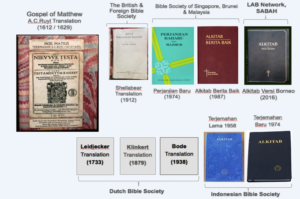PREAMBLE TO THE FEDERAL CONSTITUTION OF MALAYSIA (2013)*
There is no God but the God of Islam, and the Court is his Herald.
All religions must be subject to the supremacy of Islam.
All citizens are equal but Muslims are more equal than others.
Cut to the chase, the Court of Appeal judgment released on 14/10/2013(No.W-01-1-2010) which prohibits Christians from using the word Allah is based on the supremacy of Islam in Malaysia. The judges identify “the community” as Muslim and relegate other religious believers to “group”. Since “group” is inferior and subordinate to the superior “community”, the judges ruled, “the welfare of an individual or group must yield to that of the community.” Continue reading “Welcome to Ketuanan Islam (Supremacy of Islam) in Malaysia”
